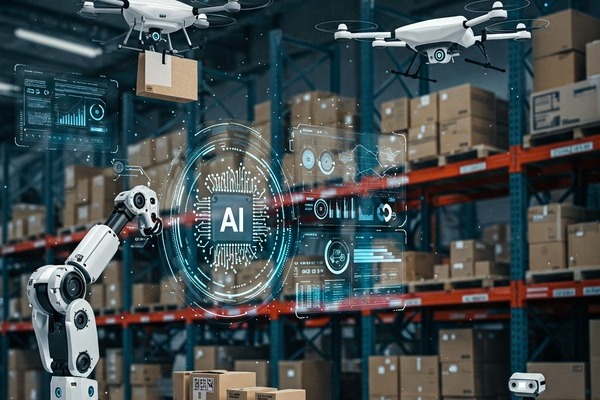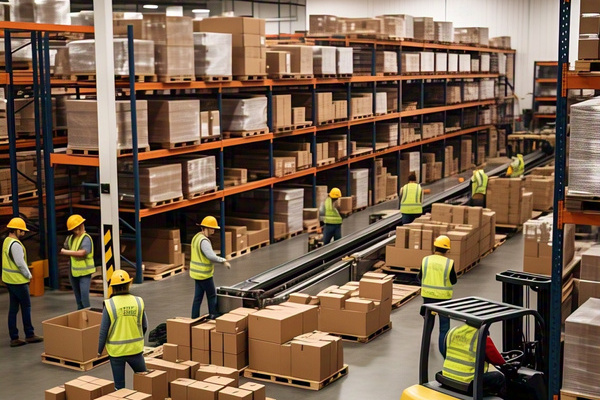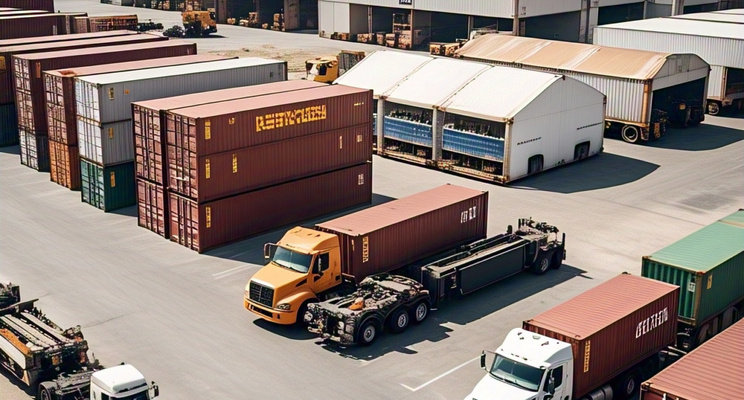Logistics is undergoing a radical transformation, with artificial intelligence (AI) at the center of this evolution. Companies worldwide are leveraging AI to optimize routes, reduce delivery times, and enhance efficiency. As the demand for faster and more reliable deliveries grows, AI-powered logistics solutions are setting new industry standards.

Optimizing Delivery Routes for Speed and Efficiency
Traditional route planning relies on fixed schedules and basic mapping tools, often leading to inefficiencies due to traffic congestion, weather conditions, or unexpected delays. AI-driven route optimization considers real-time data, historical traffic patterns, and predictive analytics to chart the most efficient course. Companies like UPS have implemented AI-based route planning systems, reducing fuel consumption by millions of gallons annually and significantly cutting delivery times.
Reducing Costs with AI-Powered Fleet Management
Fleet management is a crucial aspect of logistics, and AI is revolutionizing cost control. Predictive maintenance, enabled by AI algorithms, monitors vehicle health, predicting mechanical failures before they happen. This minimizes downtime and repair costs. Additionally, AI helps optimize fuel usage and driver schedules, ensuring maximum productivity. According to McKinsey, AI-driven logistics could reduce operating costs by up to 20% for large-scale delivery networks.
Enhancing Last-Mile Delivery with Smart Technologies
The last mile of delivery—the final step in getting a package to the customer—is often the most expensive and time-consuming. AI is improving last-mile logistics through autonomous delivery vehicles, drone technology, and real-time tracking. Amazon has been experimenting with AI-powered drones and sidewalk robots to make urban deliveries faster and more efficient. AI also predicts customer availability, reducing failed delivery attempts and improving customer satisfaction.

Dynamic Demand Forecasting for Inventory Management
AI’s ability to analyze large datasets is helping logistics companies predict demand with greater accuracy. By assessing factors such as seasonal trends, economic indicators, and consumer behavior, AI can guide businesses in optimizing inventory levels. This prevents stock shortages and overstocking, leading to a more streamlined supply chain. A study by Gartner found that AI-driven demand forecasting can improve inventory accuracy by up to 50%.
Reducing Carbon Footprint Through AI-Optimized Logistics
Sustainability is becoming a priority for logistics companies, and AI is playing a vital role in reducing environmental impact. AI-driven route optimization decreases fuel consumption, while predictive maintenance ensures vehicles operate efficiently. Additionally, AI assists in consolidating shipments, reducing the number of trips required. DHL’s AI-powered logistics platform has already contributed to a reduction in CO2 emissions by optimizing delivery schedules and transport modes.
Real-Time Decision-Making with AI-Powered Analytics
AI provides logistics managers with real-time insights, allowing them to make informed decisions instantly. Machine learning models analyze data from sensors, GPS, and weather forecasts to provide recommendations on rerouting shipments, adjusting delivery schedules, and allocating resources. This agility ensures that logistics networks remain resilient in the face of unexpected disruptions, such as natural disasters or supply chain bottlenecks.
The Road Ahead: AI and Autonomous Logistics
AI is paving the way for fully autonomous logistics operations. Self-driving trucks, robotic warehouses, and AI-managed supply chains are gradually becoming a reality. Companies like Tesla and Waymo are testing autonomous freight transport, which could revolutionize long-haul trucking by reducing human errors and increasing efficiency. As AI technology advances, logistics will continue to evolve, making deliveries faster, smarter, and more cost-effective.
AI is not just an enhancement to logistics—it is redefining the industry. With AI-driven innovations, logistics companies can optimize operations, cut costs, and reduce environmental impact while delivering an unparalleled customer experience. As businesses continue to integrate AI, the future of logistics looks more efficient, sustainable, and intelligent than ever before.





